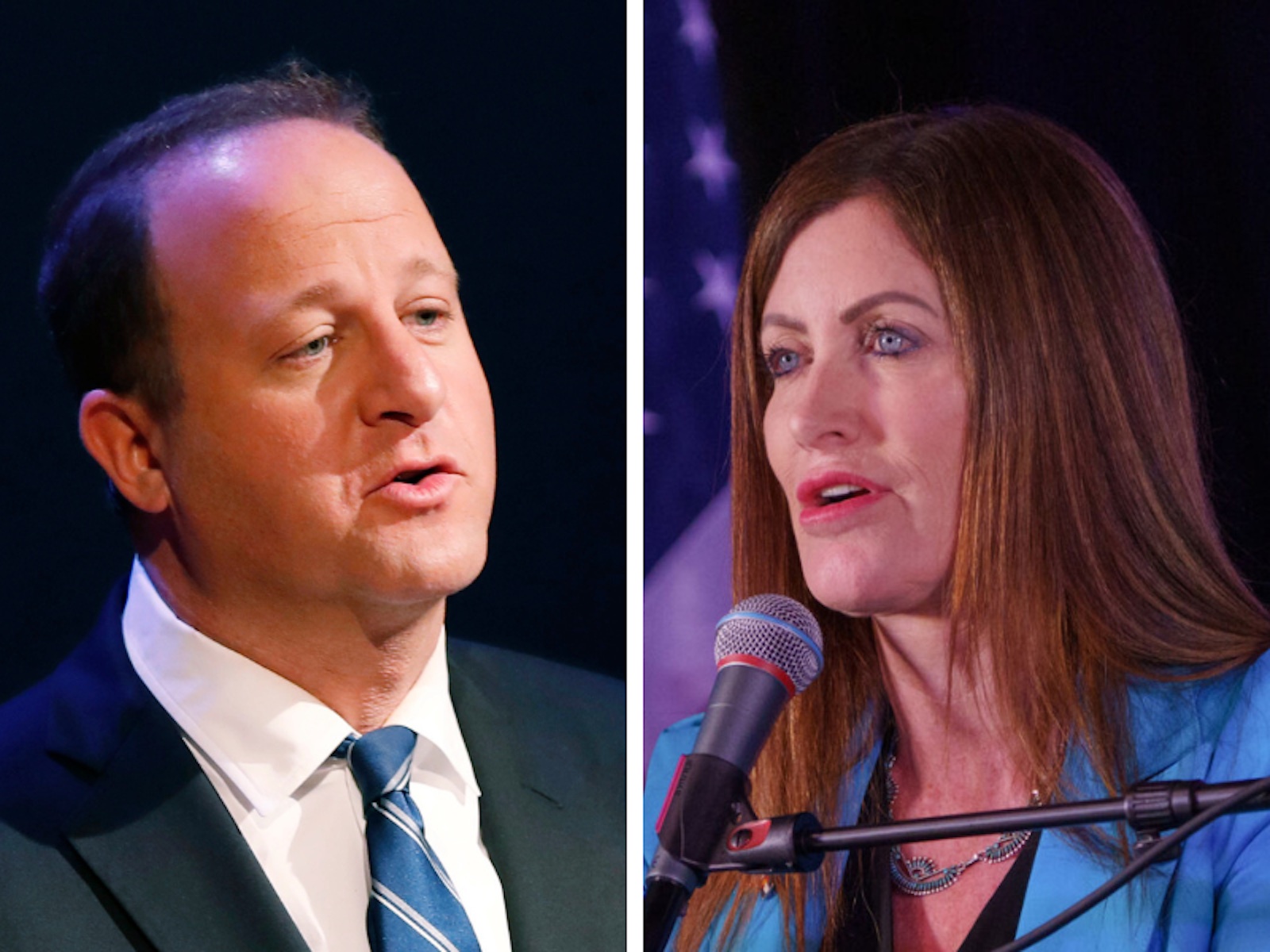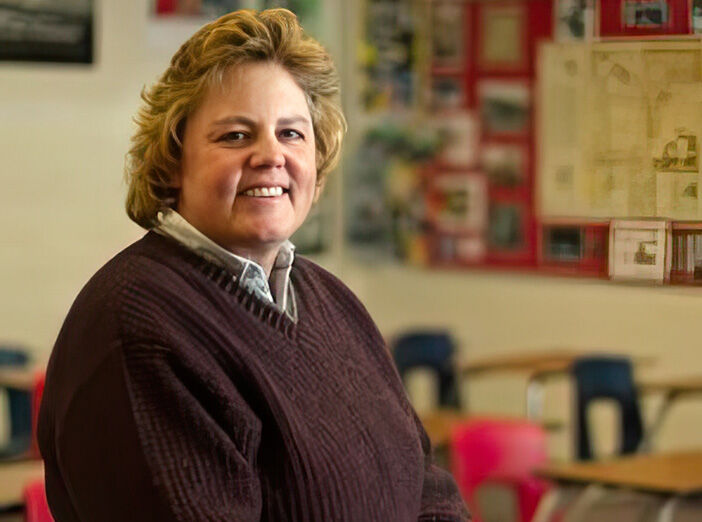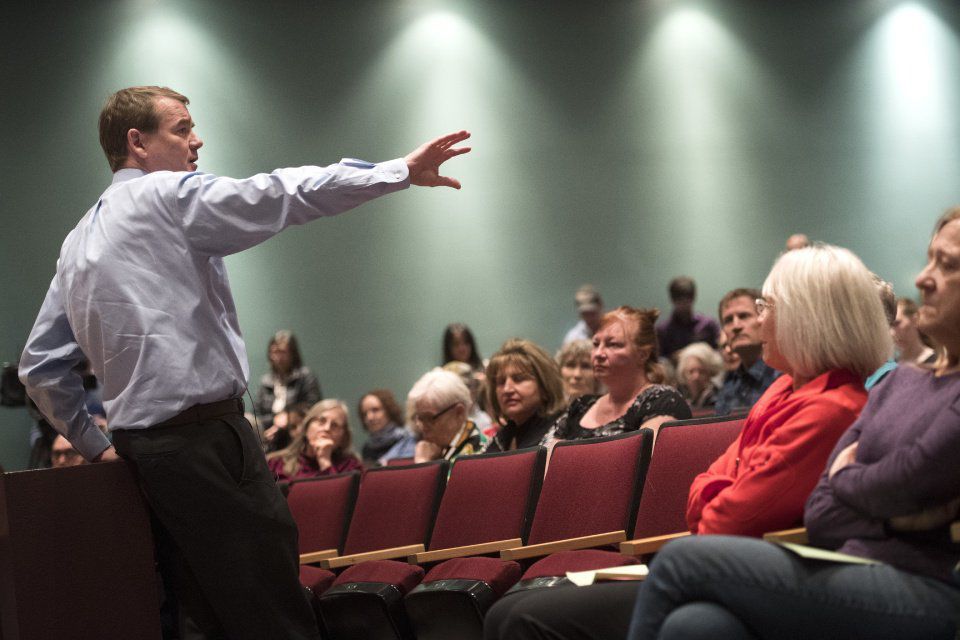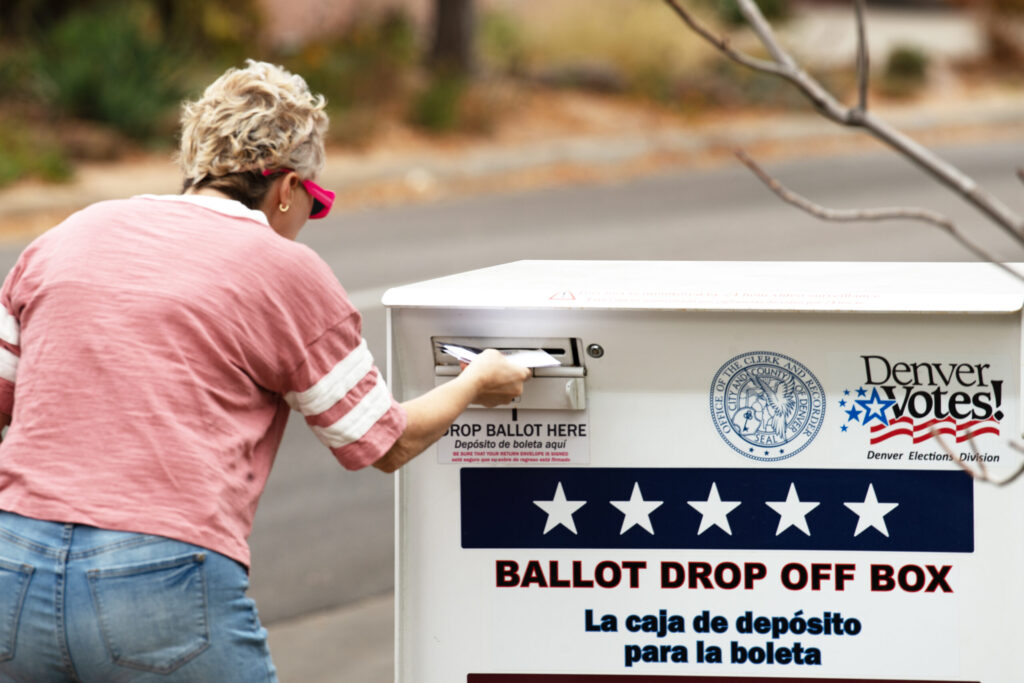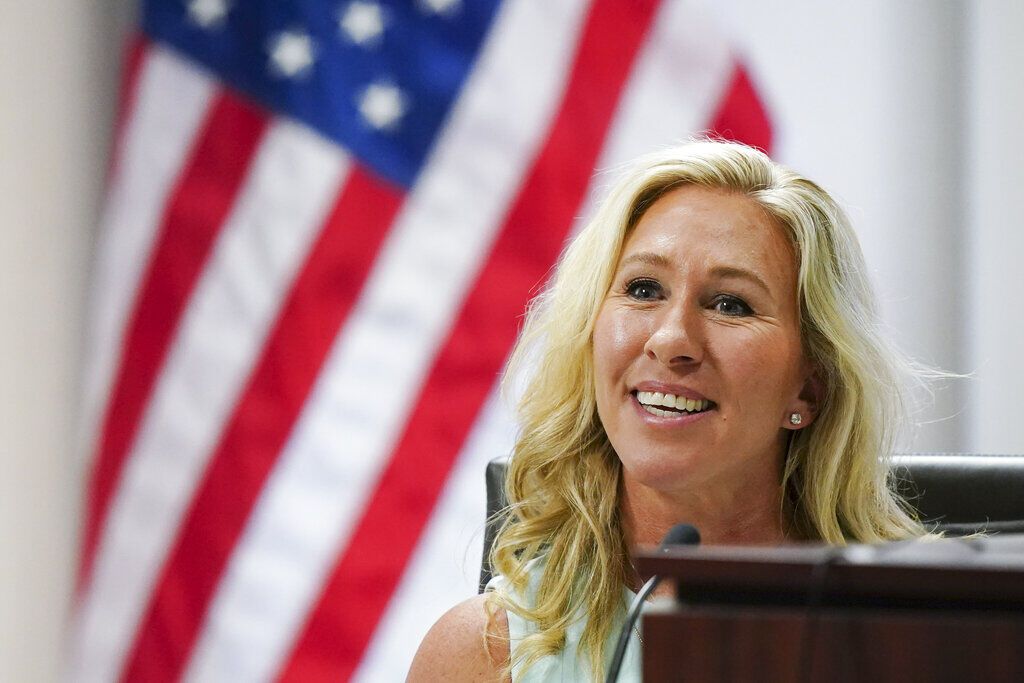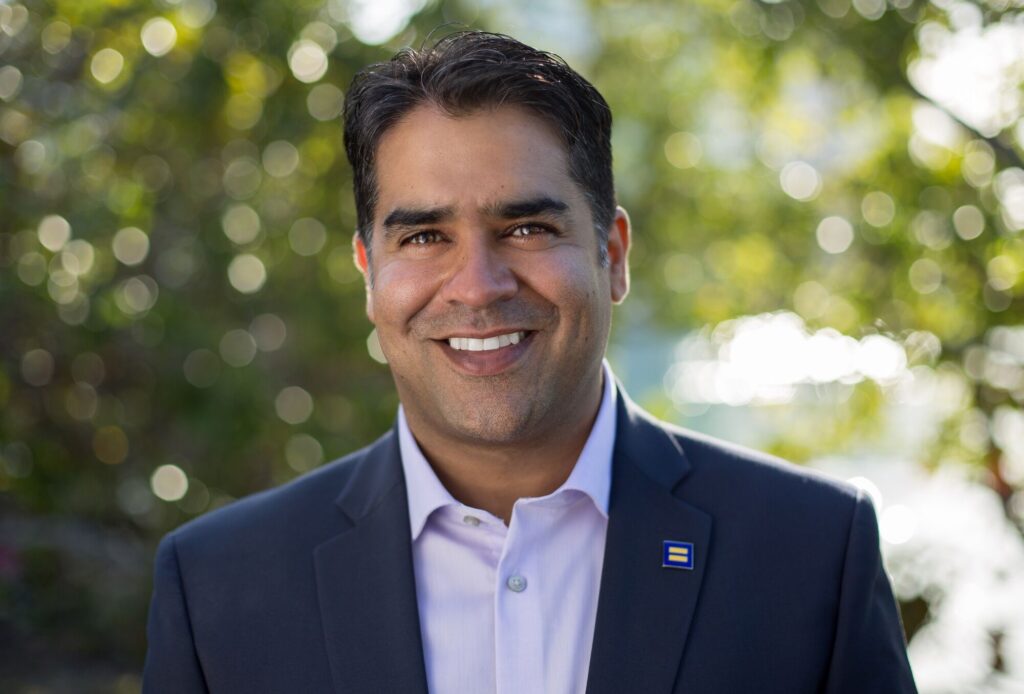Polis, Ganahl address Colorado Water Congress

Gov. Jared Polis and his Republican challenger, Heidi Ganahl, spoke at Tuesday’s Colorado Water Congress session, addressing climate change, the state water plan and the crisis on the Colorado River.
“Colorado’s a great place to live – the secret’s out,” Polis said. But that means the consequences, including extreme drought, must be addressed, a challenge that affects agriculture, cities, rivers and the entire region beyond Colorado’s borders.
The state has always honored its interstate agreements that govern how water is shared, and that will not change, Polis pledged. “As long as I’m governor, we remain committed to protecting and defending Colorado’s water rights and all of our entitlements and our responsibilities under the compacts.”
Polis noted that some of the state money headed toward water projects, such as the $60 million from Senate Bill 28, will help protect groundwater and aquifers in both the Republican River and Rio Grande River basins.
He also called for the Lower Basin states of Arizona, Nevada and California to step up to address the shortage on the Colorado River, and said that Colorado simply does not have the upstream resources, due to declining snowpack. “We work with what Mother Nature gives us.”
When it comes to water conservation, Polis added, Coloradans find innovative ways to live within their needs, be it water sharing, efficiency improvements, soil health, or watershed restoration. He asserted that Colorado is a water leader in the region, citing the work of Becky Mitchell, the Colorado representative on the Upper Colorado River Commission, and touted the UCRC’s five-point plan to address the Colorado River shortage.
The Upper Basin states intend to be part of the solution, Polis claimed.
The governor also noted new conservation measures, such as legislation in 2022 to incentivize turf replacement. He complimented the work by Aurora Mayor Mike Coffman on a city ordinance that bans Kentucky bluegrass and other warm-weather turf. Polis called it “an aggressive measure” but one that shows Colorado is doing its part. “It’s important that we claim that moral high ground” on these kinds of steps, Polis said.
The state also is working on drought resilience for agriculture, Polis said, to ensure that the decisions on water made today “support the vibrant and productive future for our state, even as our state learns not just to get by, but to thrive in the reality of less water in the future.”
That future includes how the state addresses growth. “We cannot afford the water profile of unlimited exurban sprawl,” the governor said, calling for growth to recognize the need for greater water efficiencies and in a sustainable way. “When we look at other states, we see the sobering warnings of growing desert cities without water sources, new developments that are either left all but abandoned or engaging in buy and dry” practices.
Polis, through a spokesman, explained the issue of exurban sprawl and how that would translate into state policy, given that development is a local control issue.
“Local water policy at the basin level as well as at the state level has an important role in water sustainability. Water is inherently interjurisdictional and every local community relies on Colorado’s successful water stewardship.”
Polis did not take questions from the audience.
Ganahl spoke at length about education and school choice, fentanyl abuse and teen suicide issues, affordable housing, COVID lockdowns, cutting the gas tax, inflation and eventually, water. “I will have a plan Day One to protect Colorado water, our most valuable natural resource. It’s vital for clean drinking, water, agriculture, food, security, energy, wildlife recreation.” She said she understands interstate compacts and water rights and how the priority system works.
Ganahl said the current administration has “invited federal jurisdiction over Colorado water” dating from the first decree water in 1852, the prior appropriation doctrine in 1876, the apportionment of the Colorado River in 1922 and up to the 2022 drought.
Ganahl said the Bureau of Reclamation has no jurisdiction over the Upper Basin states, only the Lower Basin states, with regard to the Colorado River. “The Upper Basin states have done just fine working through water issues and stayed within their means without the feds involved,” she added.
Renegotiating the 1922 compact is not in the state’s interest, she said.
“Decisions about Colorado’s water future must be made by Coloradans with full involvement of water providers. “Protecting our compact water and managing shortages consistent with the compact should be our highest priority.”
Ganahl also advocated for more water storage, stating as governor she would push Congress and the White House to streamline red tape in the permitting process. She would also convene an Endangered Species Act committee that would exempt water storage and irrigation from prohibitions tied to the act.
Ganahl criticized the water plan, stating it includes frameworks, studies and intends to create documents and models but not take any real action. She said she would simply work “to develop more water.”
Ganahl was asked by an audience member about how she would address climate change. She replied that she would get oil and gas workers back to work. She explained everyone wants clean energy, and that should include an “all of the above” energy approach. She added that Colorado produces much cleaner energy than the other options the Biden administration has considered or is using currently. “There is absolutely no reason for us to not produce the energy and instead go to Russia, Venezuela, Iran,” she said. (The United States does not import oil from Iran or Venezuela.)
Ganahl later addressed the issue of renegotiating the Colorado River Compact, given that the compact calls for delivery of 15 million acre-feet of water to the seven basin states, but that drought and climate change means the river can no longer supply that much water. “My job is to defend Colorado and protect Colorado’s water rights,” and said the state would lose in a renegotiation.
Colorado Politics also asked her about her position on the Douglas County/RWR water project. It’s a complicated issue, she said. “You have to protect property rights but you also have to honor the spirit of the agriculture community. I’d like to come to a healthy compromise with folks.”
Editor’s note: This story was updated to more fully explain Ganahl’s position on climate change.
